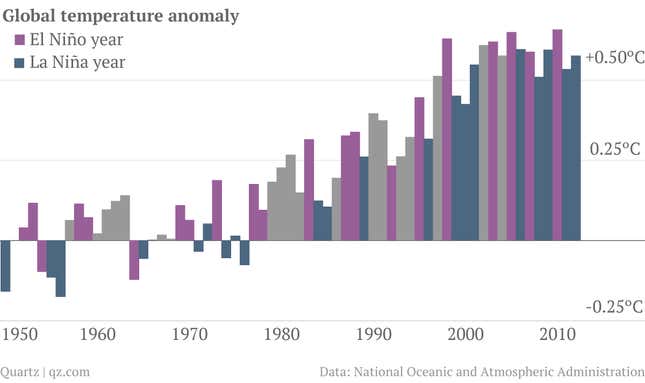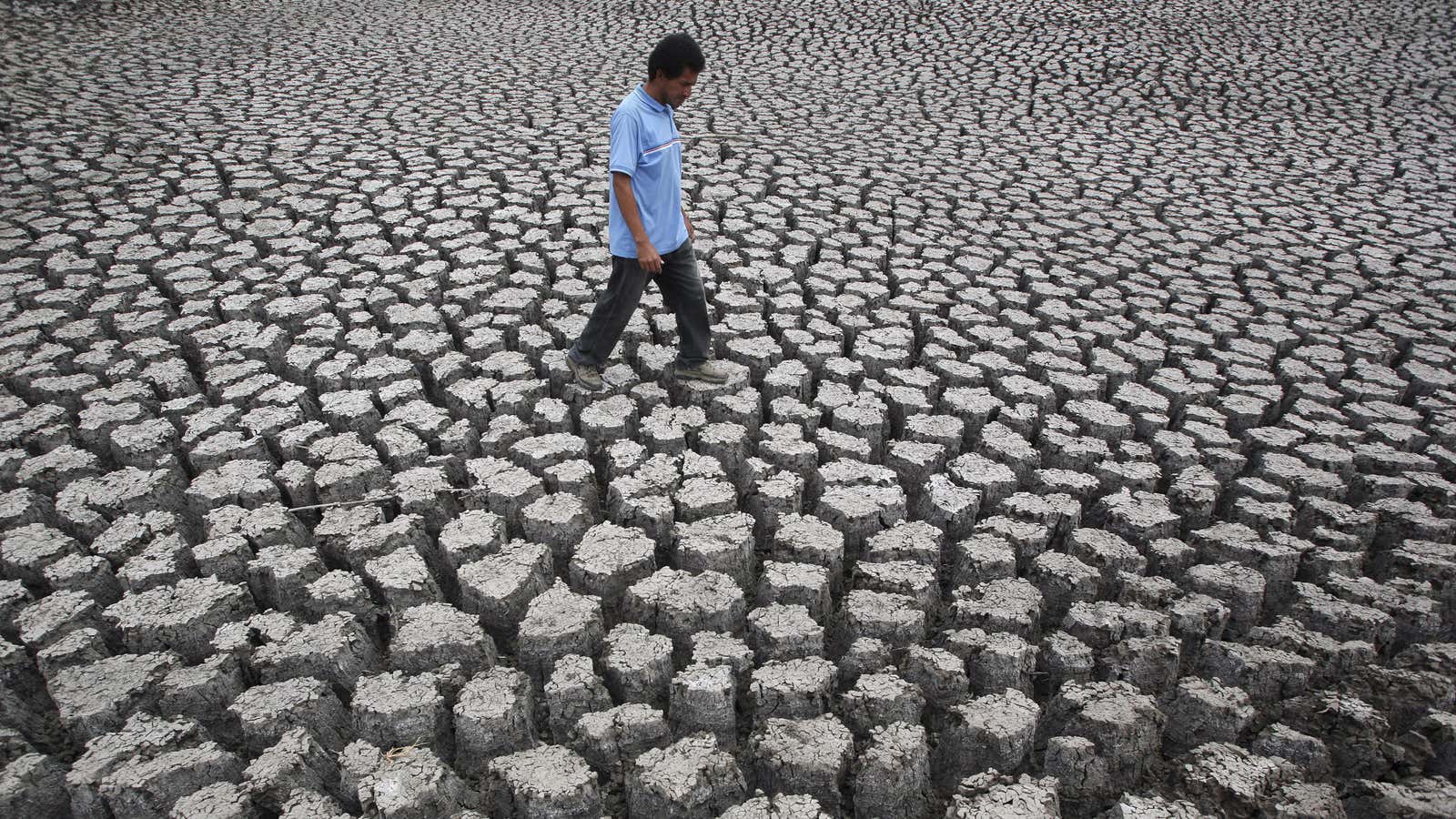New data show nearly even odds for El Niño conditions to develop next year, which could make 2014 the hottest year on record.
El Niño is the name that climatologists give to warming of the surface temperatures in the tropical Pacific Ocean. Since the Pacific Ocean is so big, slight changes can drive weather patterns worldwide. In fact, the El Niño/La Niña cycle is the world’s biggest source of year-to-year climate variability.
The tropical Pacific is now expected to warm throughout 2014, according to scientists from NOAA’s Climate Prediction Center and Columbia University’s International Research Institute for Climate and Society. That could produce a massive source of energy that would be strong enough to drive up global temperatures.
It would be the first official El Niño since 2010, currently the world’s hottest year ever recorded. Four out of the five warmest years on record were all El Niño years.

In addition to a possible spike in global temperatures, here’s what else we might expect if El Niño conditions materialize in 2014:
- abnormally dry conditions in southeast Asia and Australia. Past El Niño events have been linked to wildfires in Indonesia and reduced hydropower availability in the Philippines.
- a possible reduction in the Indian monsoon
- fishing reductions off the coast of Peru
- a rise in mosquito-borne diseases like malaria
- fewer tropical cyclones in the Atlantic and in Southeast Asia, and more in Japan and Korea
- stronger winter storms in the northeast United States and along the coast of California during winter 2014-15
The news comes just days after the World Meteorological Organization declared 2013 likely to become the seventh-warmest year since 1850, when modern temperature records began. Greenhouse gas concentrations and global sea levels both set new record highs this year.
The ten warmest years on record have all occurred since 1998. The odds of this happening by chance alone are something like 1-in-21.6 billion, or about the same as guessing the serial number on a $1 bill exactly without looking at it first. It almost makes you wonder if something else is at work here…
